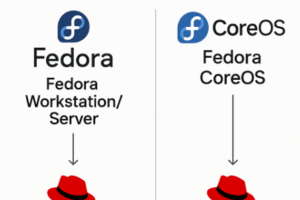
Why You Should Start Using Kubernetes (Even If You’re Not a Developer)
As businesses and developers push for faster releases, better scalability, and more resilient applications, traditional infrastructure just can’t keep up. That’s where Kubernetes steps in — a powerful open-source system that automates the deployment and management of containerized applications. Whether you’re a small startup, an enterprise team, or just curious about DevOps, Kubernetes is worth understanding and using.
What Is Kubernetes?
Kubernetes (pronounced “koo-ber-net-ees”) is a container orchestration platform. It was originally created by engineers at Google, inspired by their internal system called Borg, and is now maintained by the Cloud Native Computing Foundation (CNCF).
Its job? To manage your containers — small, lightweight packages that bundle your application and its dependencies — across multiple machines, automatically. Kubernetes helps ensure your app is always running, no matter the conditions.
1. Effortless Scaling
Kubernetes makes horizontal scaling almost too easy. You can set your application to scale up automatically during high traffic and scale down during quieter times — saving on resources and cost. All it takes is a few lines of configuration, and Kubernetes handles the rest using its Horizontal Pod Autoscaler.
2. Self-Healing Applications
If a container crashes or becomes unresponsive, Kubernetes doesn’t need your help. It detects the issue, restarts the container, or replaces it with a new one. This built-in self-healing means your app remains available — even if parts of it fail.
That’s a game-changer for uptime and reliability.
3. Cloud Flexibility: Deploy Anywhere
Run your workloads on any cloud provider (AWS, Azure, GCP), on-prem servers, hybrid clouds, or even your laptop. Kubernetes offers consistent behavior across environments, so you’re never locked into one platform. This makes app migration and disaster recovery much easier and more affordable.
4. Streamlined DevOps Workflows
Modern development pipelines rely on tools like CI/CD (Continuous Integration/Continuous Deployment). Kubernetes integrates seamlessly with these workflows. You can deploy updates with zero downtime using rolling deployments and rollbacks. It’s DevOps done right — efficient, predictable, and repeatable.
5. Perfect for Microservices
Many applications are built using a microservices architecture — breaking a monolithic app into smaller, independent services. Kubernetes shines here, allowing each service to run in its own container and scale independently. This keeps your architecture clean, modular, and easy to maintain.
6. Security and Isolation
Kubernetes supports secure defaults, including secrets management, role-based access control (RBAC), and network policies. You can isolate environments, limit user access, and protect sensitive data, all while ensuring compliance with enterprise-grade security policies.
7. Massive Ecosystem and Support
Kubernetes has a thriving community of contributors and commercial vendors. From observability tools like Prometheus and Grafana, to package managers like Helm, Kubernetes is the center of the cloud-native ecosystem. Whatever your use case, there’s likely a plugin, tool, or best practice already available.
8. It’s a Career Booster
Kubernetes skills are in high demand. Whether you want to be a DevOps engineer, cloud architect, SRE, or full-stack developer — understanding Kubernetes opens up serious career opportunities. It’s a resume booster and a gateway into learning tools like Docker, Helm, Istio, and OpenShift.
How to Get Started
If you’re new, don’t worry — you don’t need a data center to try Kubernetes. Here are some easy ways to start:
- Minikube – Run a local cluster on your laptop to experiment.
- K3s – A lightweight Kubernetes distribution great for edge and home lab environments.
- Managed Kubernetes – Try Google Kubernetes Engine (GKE), Azure AKS, or Amazon EKS for a hands-off infrastructure setup.
- OpenShift – Red Hat’s enterprise-grade Kubernetes platform, ideal for secure, scalable deployments.
Final Thoughts
Kubernetes isn’t just another tech buzzword — it’s a game-changing way to manage applications at scale. From automation and scalability to resilience and portability, Kubernetes empowers teams to build better, faster, and more reliable software.
Whether you’re running a personal project or managing production infrastructure, now’s the perfect time to learn Kubernetes.
Containers are the future. Kubernetes is how we run them.



